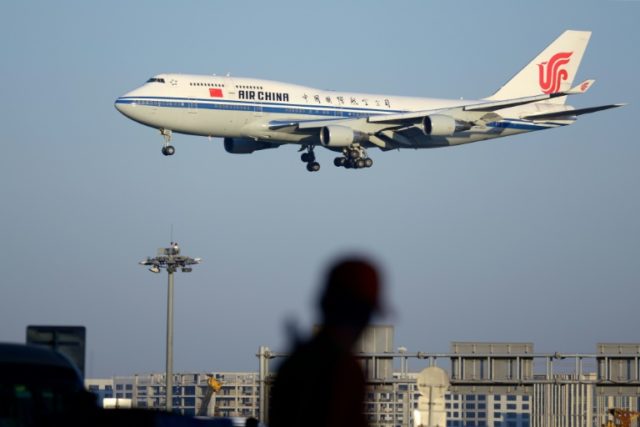China is set to exact consequences for individuals who score low in its long-planned “social credit system,” announcing this week that it would begin to ban Chinese citizens from traveling if their social credit score was too low.
Acts ranging from returning library books late to posting commentary the regime deems inappropriate on social media could reduce a person’s score. Chinese government media began discussing the establishment of a social credit system allowing the communist regime to give each individual a grade based on how much government officials like them in 2015, and have accelerated the implementation of such a system on the country’s citizens.
The National Development and Reform Commission announced on Friday that individuals with low social credit scores would begin to face bans from transportation, both local and international, beginning on May 1, according to Reuters. Chinese citizens with a low score would not be allowed on trains and planes for up to a year, depending on how low there social credit score is. Reuters lists among the potential behavior that could lower a score not paying fines for minor offenses, attempting to use expired train tickets to ride once again, smoking on trains, and “spreading false information about terrorism,” among others.
This last category could prove especially problematic in western Xinjiang province, home to the nation’s ethnic Uighur minority. The Uighurs are majority Muslim and often accused of harboring racists, in particular members of the separatist East Turkestan Islamic Movement (ETIM). Beijing has severely restricted in practicing their religion; Chinese authorities have confiscated “unauthorized” Qurans and prayer mats and prohibited public observances of Ramadan in the region.
China banned people wearing Islamic garb or Muslim beards from using public buses in Xinjiang in 2014.
Some of the first known targets of the social credit system made headlines in the Global Times Friday, a government-run newspaper. The publication reported that the regime had “blacklisted” 17 soldiers for being expelled from military training.
“The 17 men found they were unable to handle army life and tried to quit multiple times before being expelled, according to the notice released by the military recruitment office of Jilin city of Northeast China’s Jilin Province on Thursday,” the Times reported.
The newspaper cited an expert who stated that the men’s failures can be partially attributed to being “the only child in their family,” a result of China’s repressive “one-child policy” forcing any woman who becomes pregnant after having a first child to abort. Communist Party leader Xi Jinping expanded to a “two-child” policy in 2015.
The blacklisted men will not be able to “travel abroad or work as government officials,” as well as buy property or stay in high-rated hotels, due to their poor social credit rating.
The South China Morning Post reports that it takes five years to improve a poor social credit rating.
The state news outlet Xinhua reported in early 2017 that the state had launched the social credit system in the Yangtse River Delta region on a trial basis.
“From borrowing books from public libraries to borrowing bank loans, personal and enterprise credit records have been increasingly valued in China,” the news agency claimed at the time. “The national pilot plan approved by the National Development and Reform Commission is expected to help nurture a sound business and social environment in the region and regulate individual behavior based on credit records.”
Xinhua appeared at the time to sell the system as a business tool, however, helping consumers identify trustworthy merchants, tourism companies, and other corporate entities. Xi Jinping has greatly expanded the mandate of the government in micromanaging the lives of Chinese citizens since then, however, and the language regarding “spreading false information” suggests that speech that defies the regime could damage someone’s social credit. Conversely, loyalty to the Communist Party could likely boost someone’s rating. As a bad rating could keep an individual from being able to lodge in certain hotels or travel to certain places, this limits who in society a citizen can socialize with.
The Communist Party Youth League launched a dating service last year, seemingly intended to engineer couples that will build families favorable to Beijing. Last week, the National People’s Congress approved the creation of a “National Supervisory Commission,” nominally intended to fight corruption, that would likely have a mandate to monitor the behavior of every citizen. The government has not made any guarantees that these various social monitoring programs will not share intelligence or cooperate in targeting individuals.

COMMENTS
Please let us know if you're having issues with commenting.